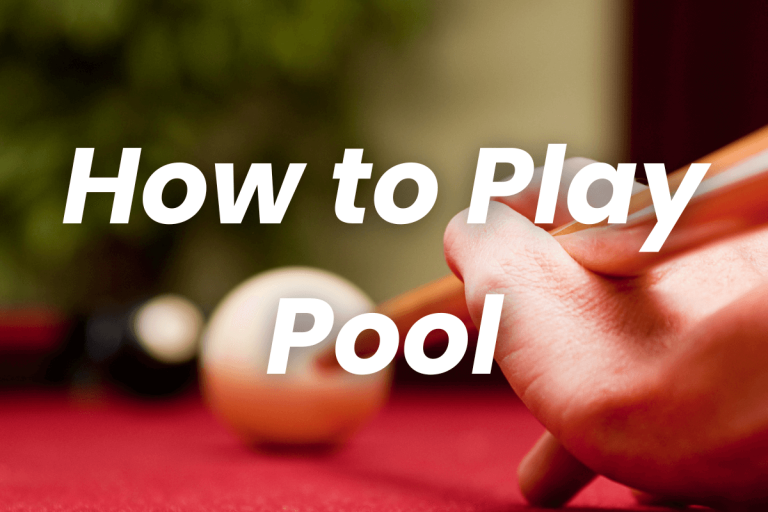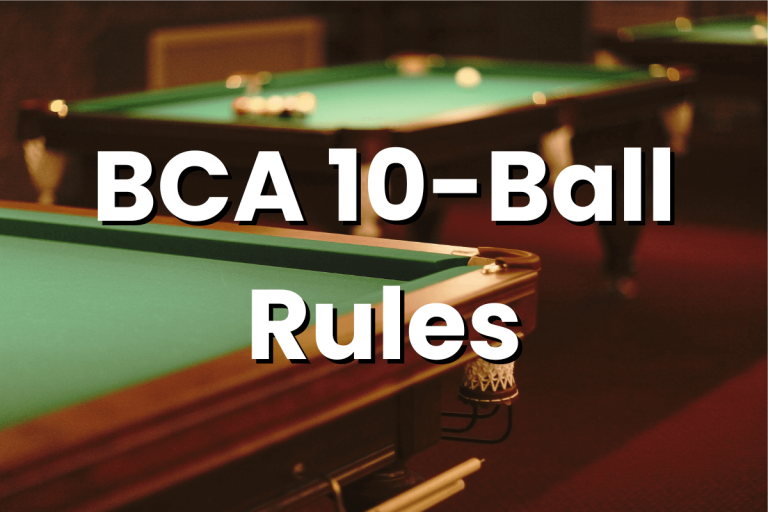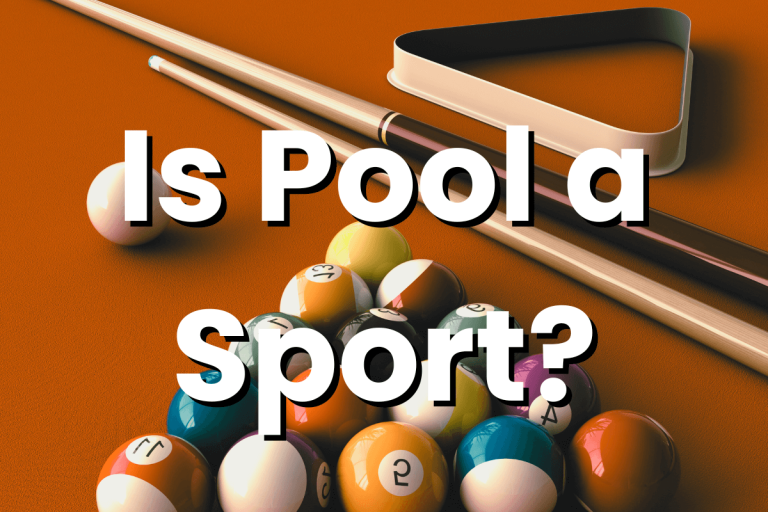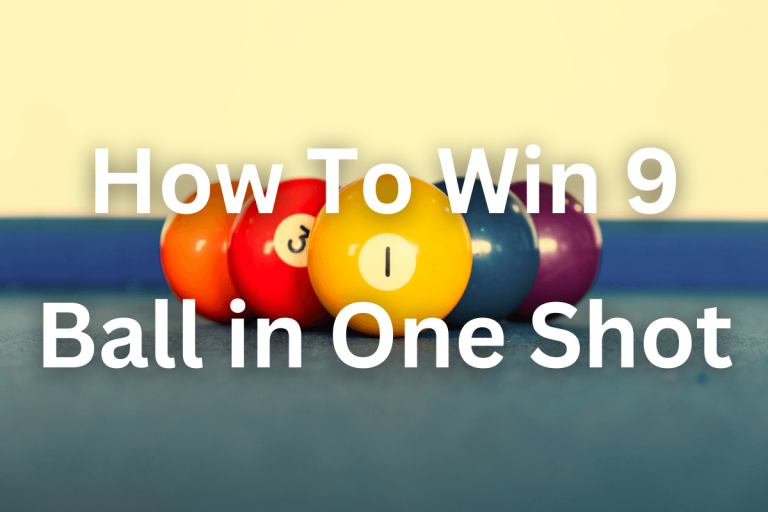Is Snooker a sport? Unveiling the Truth (2024)
Snooker, often perceived merely as a leisure activity, is a game demanding high precision and strategic acumen. Despite its widespread popularity, debates swirl around its classification, with some questioning, “Is snooker a sport?” This ambiguity stems from common misconceptions about the physical and mental rigor involved in snooker. This article aims to demystify these perceptions and delve into an evidence-based analysis to affirm snooker’s rightful place in the realm of recognized sports, examining its intricate rules, skill requirements, and global sporting recognition, thereby shedding light on the true essence of snooker as a sport.
Defining ‘Sport’: The Criteria
Overview of What Constitutes a Sport
A sport is generally recognized as an activity involving physical exertion, skill, and competition. It often includes a set of rules or customs and is commonly undertaken for recreation, competition, or physical fitness. Sports are typically recognized and governed by official organizations and maintain a standard structure in terms of gameplay, tournaments, and championships.
How Snooker Meets the Criteria
Physical Skill and Precision:
Snooker demands a high degree of physical skill and precision. Players must exhibit excellent hand-eye coordination, stability, and control to execute shots with accuracy. The game requires finesse, delicacy, and precision in striking the cue ball, positioning it for subsequent shots, and potting the target balls.
Structured Competition and Rules:
Snooker is governed by a structured set of rules that outline the game’s objectives, scoring, and conduct. It is overseen by governing bodies such as the World Professional Billiards and Snooker Association (WPBSA) and the International Billiards and Snooker Federation (IBSF). These organizations ensure that snooker maintains its competitive nature through organized tournaments, championships, and ranking systems, solidifying its status as a sport.
The Athletic Nuances of Snooker
Physical Skills Involved in Playing Snooker
- Hand-Eye Coordination and Stability
- Players must exhibit exceptional hand-eye coordination to accurately strike the cue ball and target balls. Stability, especially in stance and cue handling, is crucial for maintaining control and ensuring precision in each shot.
- Precision and Fine Motor Skills
- Snooker requires delicate control over the cue stick, demanding fine motor skills to apply the exact force and spin needed for the desired ball movement and positioning.
- Endurance and Concentration
- Matches can last several hours, requiring players to maintain high levels of concentration and mental endurance throughout the game. Physical stamina is also vital to sustain the precision and skill needed over long periods.
Mental and Psychological Aspects
- Strategy and Tactical Planning
- Snooker is not just about potting balls; it’s a game of chess with cues. Players must plan several shots, considering the positioning, potential risks, and strategic advantages to outmaneuver their opponents.
- Psychological Stamina and Pressure Management
- The mental fortitude to handle pressure, recover from mistakes, and stay focused under stress is crucial. Players must manage their emotions, maintain a calm demeanor, and make critical decisions during high-stakes moments, highlighting
Snooker’s Global Recognition and Institutional Framework
Recognition by International Sports Councils
Snooker has achieved global recognition as a sport, endorsed by various international sports councils and organizations. Its widespread acceptance and popularity transcend geographical boundaries, making it a prominent fixture in the international sports arena.
Governing Bodies and Their Role
- World Professional Billiards and Snooker Association (WPBSA)
- The WPBSA is the governing body responsible for the promotion and regulation of professional snooker. It sets the rules, organizes tournaments, and works to enhance the integrity and global presence of the sport.
- International Billiards and Snooker Federation (IBSF)
- The IBSF governs snooker at the amateur level, organizing world championships for men, women, and juniors. It plays a crucial role in nurturing talent and providing a structured pathway for players to progress to professional levels.
Major Tournaments and Championships
Snooker hosts several prestigious tournaments that underscore its status as a competitive sport. Notable among these are:
- The World Snooker Championship: The pinnacle of professional snooker, held annually and attracting top players from around the globe.
- The UK Championship: Another significant event in the snooker calendar, known for its rich history and high level of competition.
- The Masters: An exclusive invitational tournament featuring a select group of the world’s best players, celebrated for its high-stakes matches and prestigious status.
These tournaments not only highlight the competitive spirit of snooker but also contribute to its recognition as a sport with a significant global following and professional stature.
Addressing the Skeptics: Is Snooker a Sport?
Counterarguments and Their Rebuttals
Skepticism: Some argue that snooker lacks the physical intensity of traditional sports.
Rebuttal: While snooker may not demand extreme physical exertion, it requires high precision, hand-eye coordination, and mental acumen, traits that are characteristic of many recognized sports. The endurance needed for lengthy matches and the precision in each shot underscores its athletic nature.
Physical vs. Mental Exertion in Sports
Perception: A common belief is that true sports must involve significant physical activity.
Reality: Modern sports recognition encompasses both physical and mental prowess. Snooker, like chess or golf, emphasizes skill, strategy, and mental endurance, aligning it with the broader, inclusive definition of sport.
Comparisons with Other Recognized Sports and Games
Similarities with Golf: Like snooker, golf is a sport where precision, strategy, and skill outweigh physical vigor. Both sports are recognized globally and have professional circuits, emphasizing skill over brute strength.
Mind Sports Paradigm: Snooker aligns with mind sports such as chess, where the mental aspect and strategic planning are predominant. The inclusion of such activities in the sporting realm validates snooker’s status as a sport.
These comparisons and perspectives help dismantle misconceptions, reinforcing snooker’s rightful place in the world of recognized sports.
Conclusion
Snooker’s intricate blend of precision, strategic depth, and mental rigor firmly establishes it as a sport. Its recognition by international sports councils, governance by official bodies, and prestigious tournaments highlight its global stature. Acknowledging snooker enriches the sporting community, celebrating a diversity of skills beyond physical prowess. It’s time we universally embrace and respect snooker for its unique contributions to the world of sports, appreciating the discipline, dedication, and skill it demands from its players.
FAQs
Is snooker recognized as an official sport?
Yes, snooker is recognized as an official sport by various international sports councils. It has governing bodies like the World Professional Billiards and Snooker Association (WPBSA) and the International Billiards and Snooker Federation (IBSF).
What skills are required to play snooker?
Snooker requires a combination of physical skills such as hand-eye coordination, precision, stability, fine motor skills, and mental skills including strategic planning, concentration, and psychological resilience.
Are there professional tournaments for snooker?
Snooker hosts several prestigious tournaments including the World Snooker Championship, the UK Championship, and The Masters, attracting the best players from around the globe.
Can snooker be considered a physical sport?
While snooker may not involve intense physical activity like some sports, it requires significant physical skill, precision, and endurance, especially during long matches.
How does snooker contribute to the development of mental skills?
Snooker significantly enhances mental skills such as concentration, strategic thinking, and psychological stamina. Players must plan several moves, maintain focus throughout lengthy matches, and manage pressure, making it not just a test of physical precision but also a mentally challenging sport.
Snooker: More than just a Pub Game?
Absolutely! Although some might view it as a casual activity, snooker demands strategic thinking, precise execution, and mental focus, making it a competitive sport with a global following. Just like other sports, it requires physical endurance and coordination to excel at the professional level.







